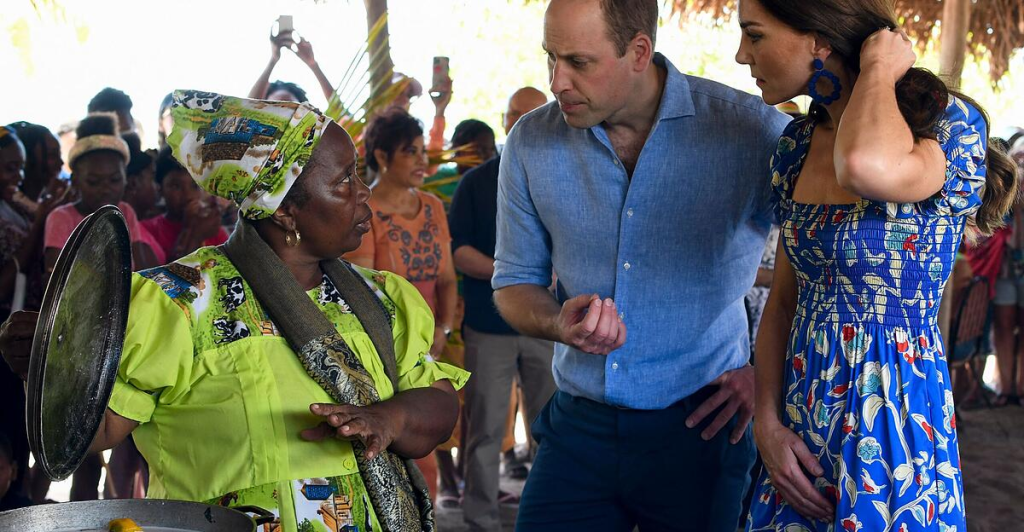For eight days, Britain’s Prince William and his wife, Duchess Kate, visited several Caribbean countries on behalf of Queen Elizabeth II to mark her 70th jubilee. The journey of the future British king and his wife was actually intended to be a witch-attack. After the former colony of Barbados declared itself a republic last year, Buckingham Palace feared the Queen’s control would continue to erode.
It doesn’t seem entirely unjustified: Although members of the royal family were warmly received at their travel destinations Belize, Jamaica and the Bahamas, there were also protests and critical overtures. The first date on a cocoa farm in Belize has been canceled due to protests. The background was a land dispute between the residents and the nature conservation organization that William was patron of.
Not a word of apology
In Jamaica, where hundreds of thousands of people kidnapped from Africa had to toil on sugar plantations, William, 39, tried to approach the issue. He agreed with his father, who described slavery in Barbados in 2021 as “a horrific cruelty that will stain our history forever,” as the second-in-line to the British throne said. But not a word of apology.
“The royal family does not apologize,” commented Philip Murphy, head of the Institute of Commonwealth Studies at University College London. The wording was carefully chosen so as not to open the door to compensation claims. Whether this approach will be sufficient to link the former colonies to the future British Crown seems questionable.
Activists from the Advocates Network group 60 gave reasons for the crown to apologize to Jamaica and pay reparations at a demonstration in front of the British Embassy in Kingston during the royal visit.
“We see no reason to celebrate the 70th anniversary of your grandmother’s accession to the British throne, because under her leadership and under the leadership of her ancestors the greatest human rights tragedy in human history has continued,” an open letter to William and Kate read. . “The monarchy is still profiting from what they’ve done to us. Our jewels are still in their crowns,” said Rosemary Frances Bender, a member of the Germany-based activist group. Many Jamaicans feel affection for the Queen. But this is changing. “We have given so much to the Crown but they have not stood by us,” she said. Another point of criticism is that Great Britain has repeatedly boasted that it had abolished slavery since 1834. But what is often not mentioned was that this was accompanied by massive reparations for slave owners, for which the country paid until 2015.
“We’re moving…”
The Advocates Network is not calling for Jamaica to abandon the monarchy. That may be imminent, Prime Minister Andrew Holness suggested. ‘We’re progressing,’ he said, while Prince William stood beside him with a somewhat awkward expression on his face. Holness had already said in December that Jamaica should become a republic – just days after Barbados formally seceded from the British Crown and declared it a republic in the presence of Crown Prince Charles.

“Travel aficionado. Certified problem solver. Pop culture guru. Typical writer. Entrepreneur. Coffee trailblazer.”








More Stories
Magic Abba – Europe's #1 Music Show Live with the Band
Joseph Hader faces 'turbulence surrounding a peaceful person'
Live streaming platform Kino VOD Club brings focus to Graz